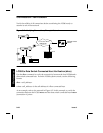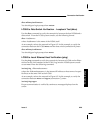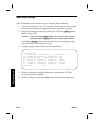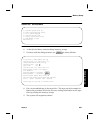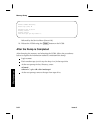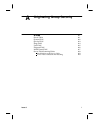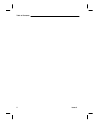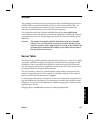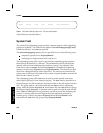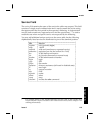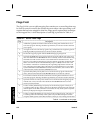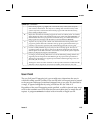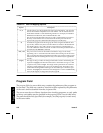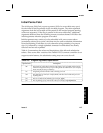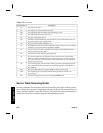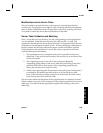
Appendix A
srvtab
system service flags user program initial-parameters
Note: Delimit fields by tabs only. Do not use blanks.
These fields are described below.
System Field
The system field (originating-group) contains a pattern against which originating
groups are matched. The format of the pattern is area/exchange/group[!][.user],
where the suffixes ! and .user are optional.
The area/exchange/group pattern may be specified in one of the following ways:
completely specified as in lc/sporty/hotrod
consisting of a single asterisk (wild card) as in *.
The originating-group suffix ! may be specified for originating-group patterns
that end with an asterisk (*) wild card. The exclamation point (!) prevents the
asterisk wild card from matching the local dkserver name. For example, if the
local server name is camaro, the pattern lc/sporty/*! will match all originating
groups in area/exchange lc/sporty except lc/sporty/camaro. This feature prevents
users from calling themselves on the same host. The local server name and the
group name of the host in the data switch control computer database must be the
same for the ! feature to work.
The originating-group suffix .user may be used to match specific users from
either specific groups or from classes of groups. The user must be specified as a
decimal integer user ID to match the format provided in the call request informa-
tion. The group pattern *.0 would match the user root from any originating
group, while the pattern lc/sporty/*.0 would match the user root from any group
in the area/exchange lc/sporty. A question mark is used to match the null user ID.
Since TY6 and TY12 ports do not generate a user ID as part of the dialstring, the
pattern *.? may be used to match requests from an originating terminal or
modem group. Finally, the pattern lc/sporty/*!.0 on the host hotrod would
match the user root from any group except lc/sporty/hotrod.
A-2 Issue 3



